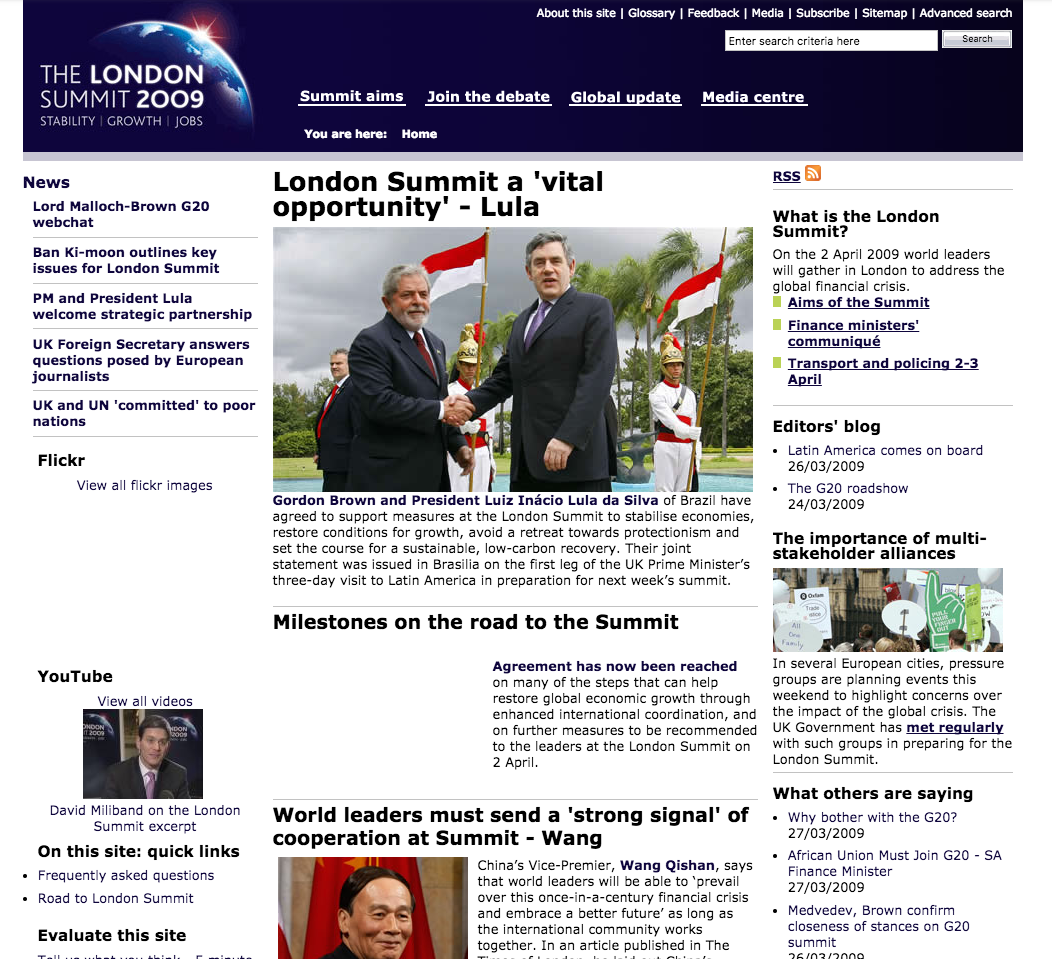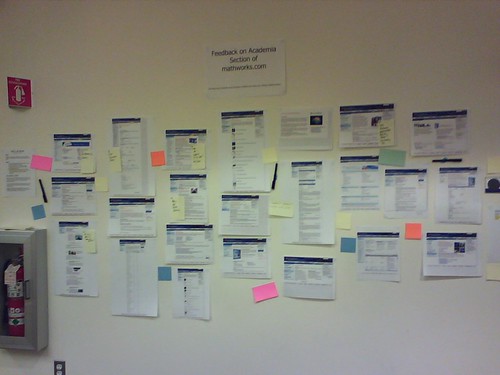I’ve been watching from the sidelines the excellent work being done online by FCO in preparation for the UK’s hosting of the G20 at the London Summit in April.
I suspect a lot more will be said about the event and its web presence (archived) over the coming weeks, but if you’re not already following it, I’d recommend it. If nothing else, it looks set to be one of the finest examples of policy engagement online. There’s
- a surprisingly content-rich microsite within the FCO’s existing web infrastructure
- a partnership with Yoosk.com is putting questions directly to ministers, including the PM and Foreign Secretary; and another with Vox.eu to stimulate professional debate amongst economists
- a promising YouTube channel, including vox pops from people whose textbooks I used to read
- a Delicious tagging strategy, to help track and share online debate elsewhere
- a hefty media centre in place already, with dedicated resources for bloggers
- good integration with FCO’s bloggers
- evaluation in place already via the Hansard Society’s Digital Dialogues programme
In the emerging field of digital engagement for policymaking, this seems to be doing a lot right: a hub for news, early planning, serious resource invested original content (but not much new money thrown at technology), partnerships with innovative forums for debate, a strategy for engagement designed to work at the level of professionals as well as the public, and measurement.
Stephen Hale has written up the strategy on his blog too – having used a previous post as a way to source ideas.
Good luck to all involved. This stuff is raising the bar.
UPDATE: And of course, a mention for Paul Massey and the team at we20.org, who are taking the engagement offline by catalysing groups of 20 individuals to get together alongside the Summit to discuss the issues as they affect their lives. An interesting example in itself of participatory culture, and a rebuttal of the nonsense that social media is antipathetic to face to face contact.


Comments
Interesting summary; thanks! Do you know if the G20 meeting itself will be broadcast or shared in real-time?
I wonder how viral the delicious tagging system is catching on. Now that I know of it, I suppose I could add it to some of my bookmarks, but how many G20 planners/bloggers are really diving through the tagged content? Or is it more to have a collection?
Ari – I’m pretty sure there’ll be live coverage of one sort or another. I suppose the interesting aspect of the distributed online debate is the fact that others can take part in online discussion associated with but not dependent on the main conference.
Tagged Delicious content is useful in lots of ways – it provides a handy RSS feed and is a way for others to contribute links proactively without introducing spam.
I’m glad you’ve written this up Steph. Stephen and team are doing such a fantastic job, and breaking ground by doing so in such an open and accountable way. I’ve been feeling guilty about not getting round to commenting constructively on Stephen’s blog about it – so your post helps assuage my guilt 🙂
There should be lots of learnings from this for all of us, via Hansard Soc and Stephen.
[…] we don’t have to rely on mainstream media for news and interpretation. Steph Gray rightly applauds the efforts being made by the governmental hosts, Foreign and Commonwealth Office, to provide a […]